In college and university, students face many pressures, contend with various obligations, and strive to achieve goals. Often, they do not have the time or the energy to invest in their own physical and mental health, leading to significant health issues down the line. Likewise, they may lack awareness of alarming symptoms, feel alone in their problems, or not know where to turn to for assistance.
These concerns may intensify for women in particular, as women are more likely to suffer from certain diseases, disorders, and other health struggles than men. Additionally, women often receive inadequate care and treatment with traditional health services, which may prolong problems or delay diagnoses.

Since this is the case, women in college must recognize when they may need help and understand they are not alone in their health challenges. It is also crucial to understand how and where they can access proper support for women’s health in college. When female students can access this information easily, they can receive the essential services they need. They can improve their overall health and well-being, enhance their mental health, catch dangerous illnesses and diseases early, and access support for critical decisions.
Fortunately, more colleges across the United States offer comprehensive women’s health services. As a result, more students can access information, care, and treatment for health issues. Since access to information is part of the challenge women face, this guide can serve as a starting point for students and prospective students. Follow along to find out about women’s physical health and mental health struggles, the prevalence of common women’s health issues, what services colleges provide for women’s health, and how you can access assistance or support.
Resources:
American College Health Association
CDC – College Health and Safety for Women
Center for Young Women’s Health
Physical Health
Women’s health in college encapsulates various dimensions, mainly referring to physical health. Physical health is the condition of the physical body and how well each part functions and operates together. Ideal physical health looks different for everyone; however, students should focus on a few general elements. They need to maintain a nutritious diet, exercise regularly, receive sufficient sleep, and go for routine check-ups.

Often, students struggle in these areas due to a lack of knowledge or other obligations interfering with their needs. Many health clinics offer classes, specialized services, or other resources for women to obtain knowledge about physical health. Nutrition, weight management, fitness, reproductive health, sexual safety, and domestic and sexual violence resources may be available through the women’s health in the college network. Women can learn how to take care of themselves and achieve a school-life balance that does not compromise their health.
Routine check-ups with a medical professional ensure that female students receive the necessary care. Likewise, if women experience symptoms out of the ordinary, it is important to make an appointment with a doctor or a nurse as soon as possible. Doctors can discuss health care concerns, evaluate the body, and run appropriate tests and scheduled screenings. Specifically, standard tests may include mammograms, gynecological exams, and STI screenings.
Furthermore, women are at a higher risk for certain diseases such as heart disease, breast cancer, ovarian and cervical cancer, gynecological health conditions, and autoimmune diseases. Care providers can help educate women on the particular risks of these concerns and offer screenings and tests for specific problems. When women reach out to women’s health in college services, they have the ability to take charge of their health and learn how to take care of themselves now and in the future. Find out more about each of the common physical health issues for women below.
Reproductive Health
Sexual and reproductive health is a major cause of health concerns in college-aged women. In particular, regular exams, testing, contraceptives and other safe sex options, and after-care resources are essential for sexually active students. As 26% of undergraduate women are mothers, reproductive health may be one of the most critical aspects of women’s health in college.
Reproductive Health and Community College Students
Reproductive Health Promotion on College Campuses
Five College Reproductive Health, Rights, and Justice
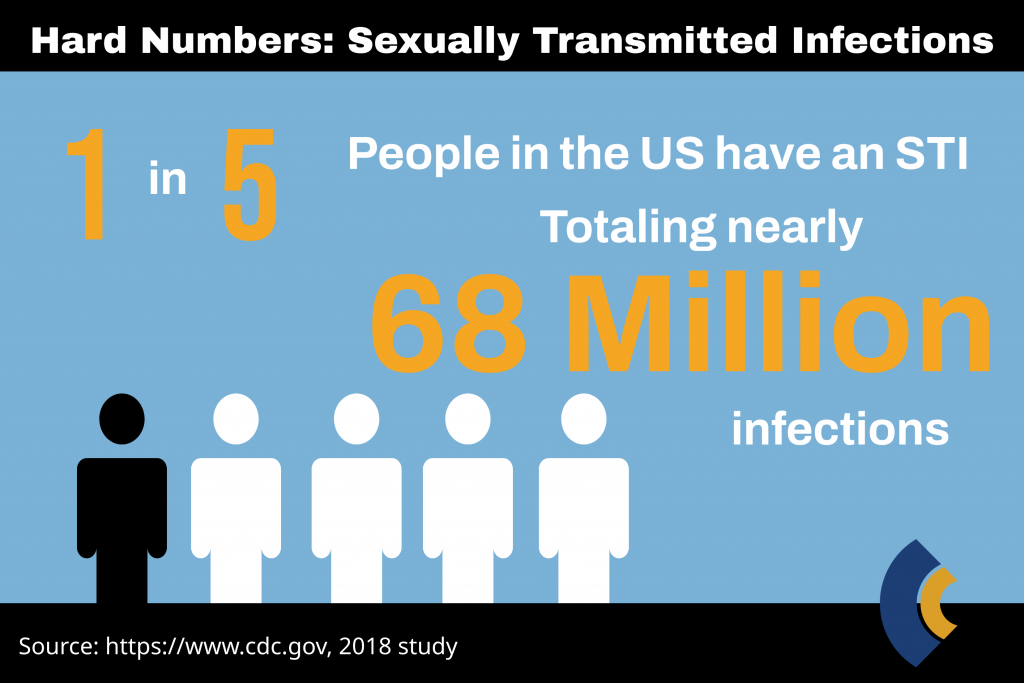
Sexual Health
25% of students have an STI, which is an alarming statistic across the board. As some STIs do not show symptoms in women, it is important to receive regular STI tests and practice safe sex.
Knowledge and Attitudes about STIs
College Students’ Gaps in Knowledge
What Every College Student Needs to Know About STDs
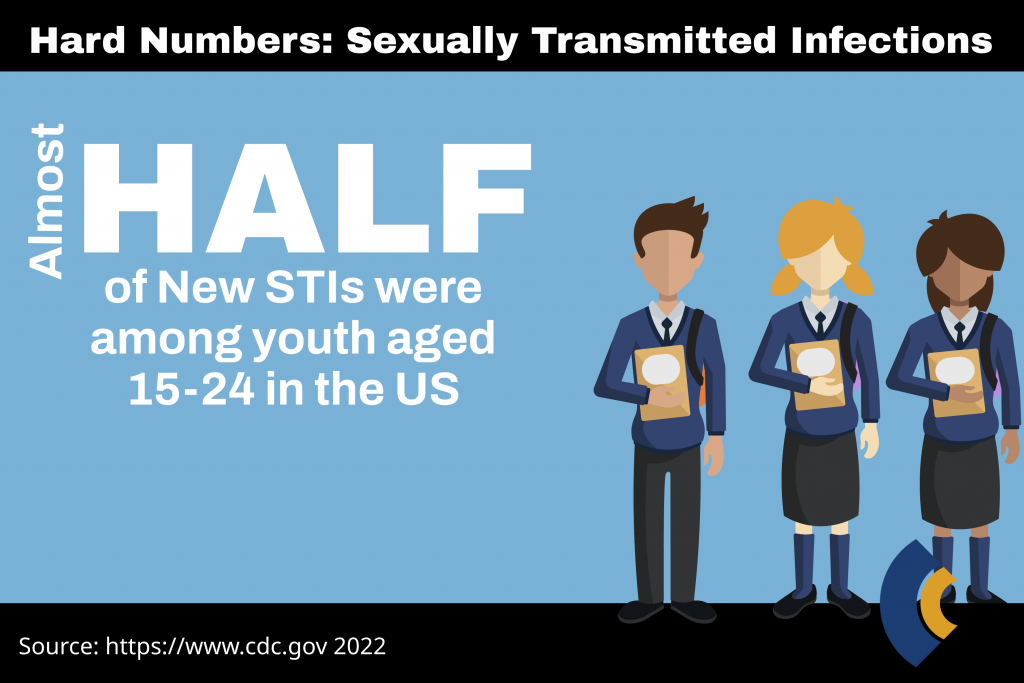
Medication Management
For many students, college is the first time they live on their own. They need to remember their medication and manage their prescriptions. Another challenge may be avoiding substance abuse, as 20% of college students abuse prescriptions for stimulants. Fortunately, there are colleges that offer services related to medication management, prescription and dispensary, and substance abuse.
Medication Management in College
Teaching Medication Management to Your College-Bound Teen
Managing ADHD Medication in College
Teaching Your Child to Manage Medication in College
Study Drug Abuse By College Students
Migraines
Migraines disproportionately affect women. In fact, after puberty, girls are 50% more likely to suffer severe headaches. Stress, hormonal changes, caffeine and other stimulants, smoking, and sleep changes may all increase the likelihood of suffering from migraines.
Preventing and Taking Care of Migraines for College Students
Advice for Managing Migraine as a College Student
Tips for College Students with Migraine
Coping with Migraine in College
Diabetes
College students need to manage nutrition and fitness to reduce their chances of developing type 2 diabetes. In fact, 18% of adolescents show preliminary signs of diabetes. Women who are overweight or pregnant may be at a greater risk of diabetes.
Dealing with Diabetes in College
Preparing Students with Diabetes for Life in College
Many College Students Underestimate Diabetes Risk
Obesity
Obesity may increase the risk of health issues, especially when students gain further weight in college (the infamous “Freshman 15” is not only a real phenomenon, but steadily increasing). 35% of college students are overweight or obese, yet women may have more risk of severe obesity.
Almost 1 in Every 3 College-Age Americans Are Now Obese
Obesity Awareness & Resources for College Students
Overweight and Obese College Students’ Perceived Barriers
How has the health of college students changed in the last 50 years?
Heart Disease
Heart disease is one of the leading causes of death for women. Since college students are less likely to know or understand heart disease, it is good to understand the risks and how to prevent heart disease early on in life.
Awareness of heart disease among female college students
Heart Disease in Women is Not Like Heart Disease in Men
Women and Heart Disease: New Data Reaffirm Lack of Awareness By Women and Physicians
Chronic Health Conditions
Chronic health conditions and autoimmune diseases affect women more than men, in increasing numbers every year. For this reason, women should know the signs of health problems such as exhaustion, prolonged low-grade fevers, continuous pain, and skin changes.
American College of Obstetricians and Gynecologists
Women’s Health: A Guide to Legal Resources
Women’s Health Research Institute
Postsecondary Education for Women With Disabilities
Empowerment for Female College Students with Disabilities and Their Allies
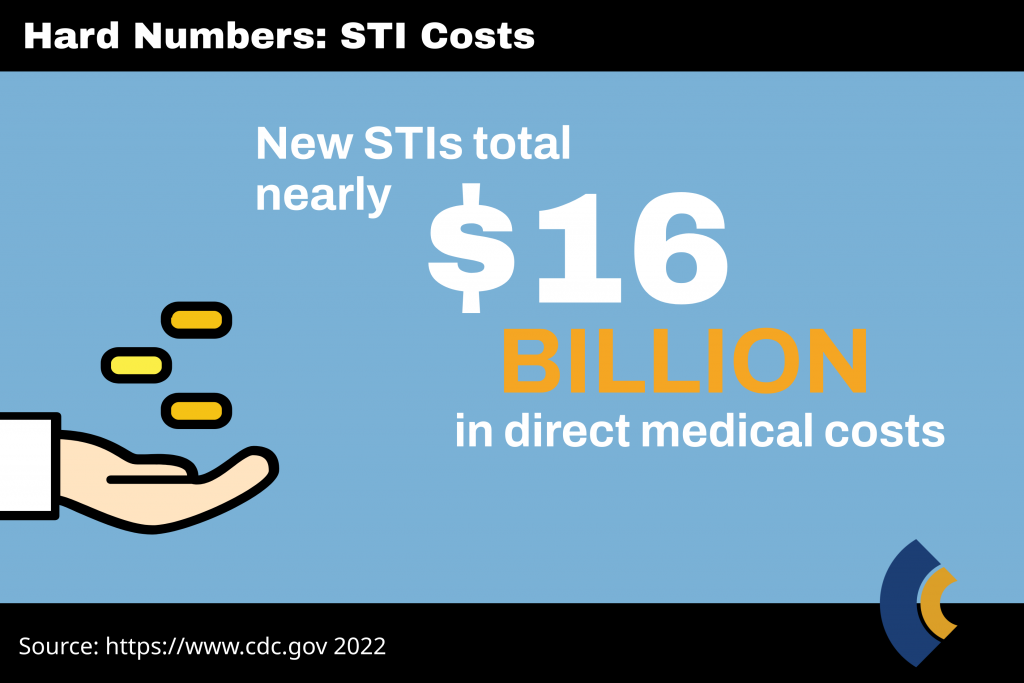
Mental Health
Mental health has recently become a popular topic of conversation, as disorders and conditions have increased in the past decade. Optimal mental health refers to understanding one’s own abilities and capacities, adhering to those limits, and coping with life and work stressors in healthy ways.
Women, especially women attending college, display high risks for severe depression and anxiety. Alarmingly, the numbers indicate the prevalence of mental distress is above 20%. In the United States, mental health disorders in female students range between 9% and 26%. Therefore, it is critical that college students find women’s health in college accessible.
When students can reach out to health care professionals for counseling, therapy, psychological assessments, or support groups, they can learn how to attend to their mental health needs. As many individuals are young when they begin college, they may not have addressed underlying mental health conditions prior to schooling.
Likewise, stress from school or other areas of life may increase the severity of specific mental health issues. As such, it is essential for students to understand and manage common stress points and aggravating conditions. Attending therapy, support groups, substance abuse programs, or specialized assistance can significantly improve mental health management and recovery.

There are a few mental health concerns that female college students suffer from in high numbers and with great severity. These issues include depression, anxiety, eating disorders, drug and alcohol abuse, and sleep impairments. When women understand they are not alone in these problems, it reduces the amount of shame and stigma surrounding them. In this case, they are more likely to reach out and receive help from a professional. Read more about each concern below.
Mental Health on College Campuses
Covid-19 and Women’s Mental Health
Mental Health – Women’s College Health Institute
Eating Disorders
Eating disorders affect 10-20% of female college students in the United States. It is also the perfect setting for eating disorders to start, as students face stressors and pressures from multiple directions. Eating disorders come in many different forms, including anorexia, bulimia, orthorexia, and binge eating disorder.
College Students and Eating Disorders
Eating Disorders in College Students
Here’s Why Eating Disorders on College Campuses Are on the Rise
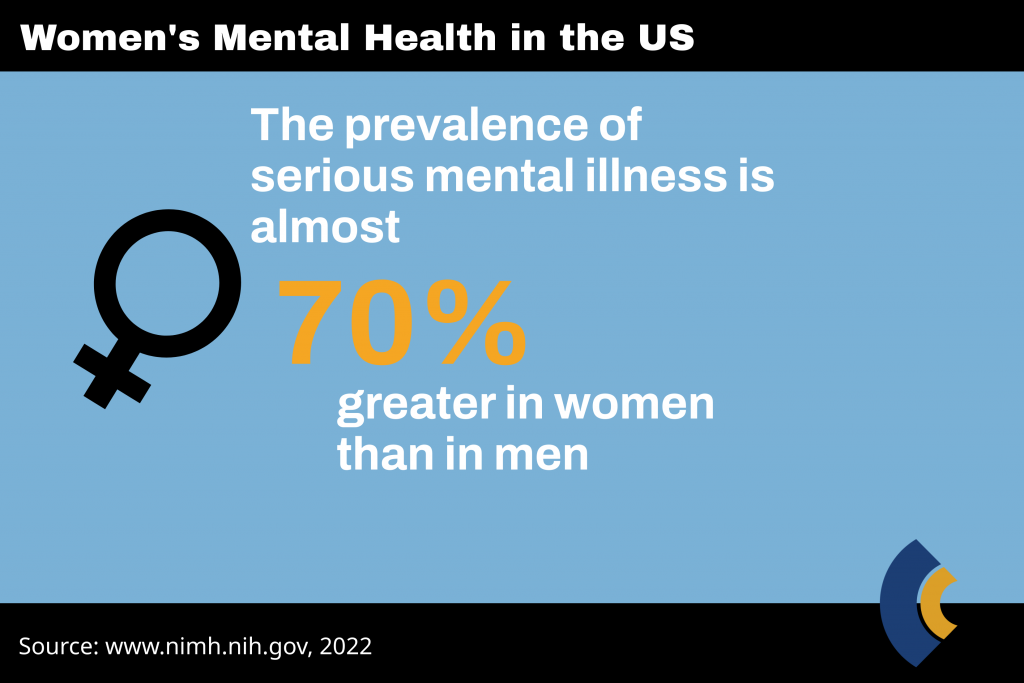
Depression
Women are 50% more likely to develop depression between the ages of 14 and 25 years old, during high school and college. Hormone changes, relationship issues, social pressures, lack of self-care, and school performance may all contribute to the high rates.
What parents need to know about college students and depression
What Are the Warning Signs of Depression in College Students?
What to Know About Depression in College Students
Depression in College Students: New Statistics and Research
1 in 3 College Freshmen Has Depression, Anxiety
Anxiety
Many college students experience anxiety, especially in the first couple of years of college. Yet, women are more likely to experience higher, above-normal rates of anxiety than men.
Female students more likely to experience anxiety
College Is Even More Stressful for Girls: Study
Anxiety in College Students: Signs, Symptoms & Treatments
Sleep Difficulties
Although 60% of college students experience sleep problems at some point in their academic careers, women suffer from insomnia and other sleep difficulties more often. Mental health disorders, reproductive health, and other health struggles may be to blame.
Superwomen and Sleep: an Assessment of Black College Women
Why You Should Make a Good Night’s Sleep a Priority
Stress and Sleep Disturbances Among Female College Students
The Mental Health Effects of Sleep Deprivation in College Students
Lack of sleep affecting students’ mental health especially women
Drugs and Alcohol
Drugs and alcohol abuse are significant concerns for many college students. 1.2 million college students drink a heavy amount of alcohol, and 2 million college students use illicit drugs. As 19.5 million females above the age of 18 use illicit drugs, it is easy to see how fast these issues can progress from college onwards without proper assistance.
Race/Ethnicity and Gender Differences in Drug Use and Abuse Among College Students
Do Men or Women Use Drugs More Often in College?
Rise in Alcohol Abuse by College Women
Substance Use Among College Students
Harassment and Bullying
Harassment and bullying contribute to poor mental health on college campuses. 4% of female college students are victims of bullying, 18% of rumors, and 13% experience sexual assault.
Campus Sexual Violence: Statistics
A crisis of campus sexual assault
An Underreported Problem: Campus Sexual Misconduct
Thoughts about sexual assault on college campuses
Sexual assault on college campuses
Learning Disabilities
An estimated 19.6% of college students with disabilities, including learning disabilities, are female. While this indicates that it is an excellent idea to seek out educational assistance and accommodations, when necessary, it may also indicate a need for testing if students have trouble with certain aspects of school.
Women with Learning Disabilities
College Students with Learning Disabilities
College Students with “Hidden” Disabilities
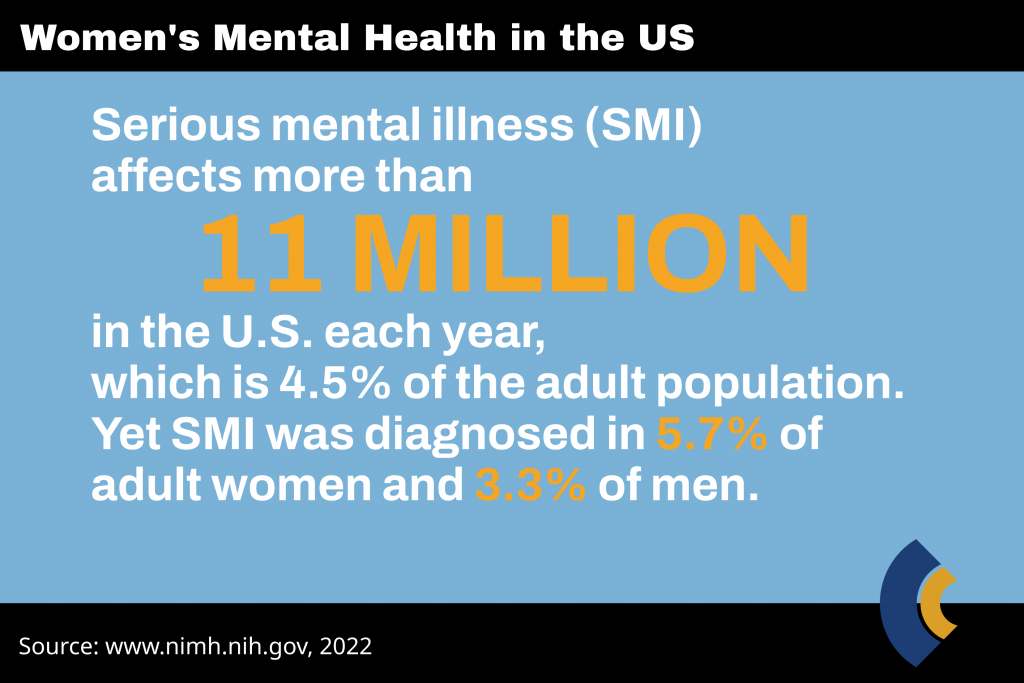
Other Mental Health Concerns
There are numerous other mental health concerns that may affect women’s health in college. When female students are suffering from poor mental health, it is critical to seek help or guidance. Many health care providers can point students in the proper direction to appropriate resources if they do not specifically handle those concerns themselves.
Suicide Prevention Resource Center
The College Mental Health Crisis
Women’s Mental Health 101: Statistics, Symptoms & Resources
What Colleges Provide for Women’s Health
Since women’s health in college should be a key concern for current and prospective students, it is important to know how to access health services and the types of services available. Many colleges and universities that offer comprehensive health services can address women’s health concerns, yet they may dedicate a specific doctor or team for women. Female students can schedule routine physical exams and screenings, receive referrals to specialists, address particular health concerns, and obtain informational resources.
Often, women’s health care in college can be the best source of care and treatment, especially for women who are studying away from home and who cannot visit their primary care physician. They train in a wide range of conditions or specialize in one area of health, such as gynecology. In this case, students may feel more comfortable visiting their doctor for a routine PAP smear or STI testing.
College health services that partner with medical centers may offer the most extensive health services for female college students. While they may not have all their departments on campus, students can visit the medical facilities and receive prompt care and treatment. In this way, when they need a specific service, they can easily access it.
Furthermore, many college campuses offer health-related services through their academic network. The primary health clinic can direct students to other departments for further information, support, or assistance. They may guide students towards nutrition and fitness coaching, counseling, therapy, emotional and behavioral classes, or educational resource centers. In such a manner, women can seek the support they need directly no matter what they need assistance with. Read more to find out about common services provided by colleges.

Women’s Health Service
Whether a college has a specific clinic dedicated to women’s health or they have a particular women’s health doctor, students can schedule breast exams, gynecological exams, PAP smears, STI screenings, and pregnancy tests. They may ask for referrals for mammograms, maternal care, autoimmune diseases, and chronic illnesses.
Resources:
Center for Women’s Health at UNC
Active Women’s Health Initiative
Women’s Health Policy in the United States: An American College of Physicians Position Paper
Nutrition
Proper nutrition is key for optimal health and well-being. Many women may require specialized nutritional counseling if they are an athlete, experience an eating disorder, or suffer from a health condition. Nutritional guidance can help women with weight management, digestive disorders, hormonal imbalances, diabetes, and pregnancy.
10 Healthy Eating Tips for Busy Students
Counseling
Female students should take care of their mental health, especially since they are at high risk for conditions such as depression and anxiety. If they notice any change in their mental, emotional, or social well-being, they may benefit from counseling, psychiatric testing, therapy, treatment plans, or external rehabilitation.
A Crunch at College Counseling Centers
Finding a Therapist for Your College Student
Benefits of Counseling for College Students
Emergency Medical Services (EMS)
Students who are experiencing an emergency can call on-campus emergency medical services (EMS) which can provide immediate, basic care and life support. They can carry out these measures until advanced medicine arrives on the scene and takes over.
Pharmacy
Some colleges have the right to fulfill basic prescriptions right on campus, including standard pain medications, contraceptives, and antibiotics. The service ensures that students do not have to travel far off campus for medication management. Additionally, pharmacy chains may be able to deliver fulfilled prescriptions to the on-campus pharmacy or student residences.
Vaccinations
Doctors can receive and administer certain vaccinations for students based on their health history. If students are planning to travel abroad, they may consult with a doctor who can advise them on which vaccinations they need to enter the destination country. If the vaccination is not readily available on-campus, doctors can refer students to an outside provider.
Transgender Health Services
Transgender students may wish to receive health care and treatment in an exclusive, safe environment. Many colleges offer dedicated transgender health services so that all students can receive the care they need.
Colleges and Universities that Cover Transition-Related Medical Expenses
Trans-Inclusive College Health Programs
FAQ About Transgender Students at Colleges and Universities
Related:
Biggest Scholarships for Women
Best Business Schools for Women
Biggest Scholarships for LGBTQ Students
Best Business Schools for LGBTQ
